February 27, 2017
By Kamyar Behrang
A curious political trend in elections of recent years in Iran has been the growing presence of populist far-right groups such as the Popular Front of Islamic Revolution Forces (JAMNA). It is an offshoot of mainstream conservative political parties aiming to influence the process and outcome of elections.
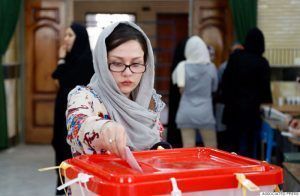 According to various reports, JAMNA has already short-listed 10 candidates and will make its final selection through three qualifying rounds. Most of the candidates, including Ezatollah Zarghami, Mohammad Baqer Qalibaf, Parviz Fattah, Mohsen Rezaei, Alireza Zakani and Rostam Qasemi have served as high ranking commanders in the Islamic Revolution Guards Corpse (IRGC) at some point in their careers. There are other names on the list of potential candidates, including Mohammad Reza Bahonar, Hamidreza Hajibabaei, Mostafa Mirsalim, Gholamreza Mesbahi Moqqadam, Mohammad Mohsen Abutorabifard and Reza Taqavi.
According to various reports, JAMNA has already short-listed 10 candidates and will make its final selection through three qualifying rounds. Most of the candidates, including Ezatollah Zarghami, Mohammad Baqer Qalibaf, Parviz Fattah, Mohsen Rezaei, Alireza Zakani and Rostam Qasemi have served as high ranking commanders in the Islamic Revolution Guards Corpse (IRGC) at some point in their careers. There are other names on the list of potential candidates, including Mohammad Reza Bahonar, Hamidreza Hajibabaei, Mostafa Mirsalim, Gholamreza Mesbahi Moqqadam, Mohammad Mohsen Abutorabifard and Reza Taqavi.
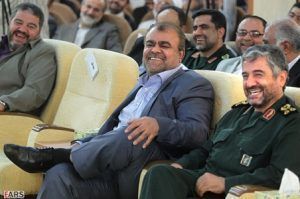
The fact that most of these individuals have strong ties to the IRGC is rather significant, especially since JAMNA and its supporters believe that the next president should have strong revolutionary credentials which, in their view, means having a military background.
Meanwhile, other ultra-fundamentalist groups are trying to weigh in on the vetting process of the candidates. Morteza Aqa-Tehrani, general-secretary of Front of the Islamic Revolution Stability, said, “ Some people may think that we don’t want to see qualified candidates to get through. This is not about a show of solidarity, but rather fulfilling our duties. At the end of the day, we will support candidates who have been successfully vetted, even if they are not from our camp.”
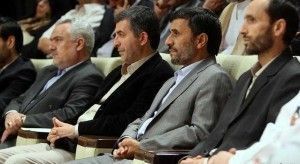 Another right-wing conservative group, the Front for Fellowship Efficiency and the Development of Islamic Iran (Unique Front), that was formed by the allies of the former president, Mahmoud Ahmadinejad, has thrown its support behind Rostam Qasemi and Hamidreza Hajibabaei, with the former having the best chance of becoming its final choice.
Another right-wing conservative group, the Front for Fellowship Efficiency and the Development of Islamic Iran (Unique Front), that was formed by the allies of the former president, Mahmoud Ahmadinejad, has thrown its support behind Rostam Qasemi and Hamidreza Hajibabaei, with the former having the best chance of becoming its final choice.
The race is not entirely dominated by traditional factions. Hamid Baqaei, a senior advisor to former president, Ahmadinejad, is running as an independent candidate. Baqaei claims not to belong to any political party or faction, and that his motive for entering the race is to “serve his country and the nation.” He has been described as a pragmatic, moderate conservative with liberal views on social issues. Although sources close to Ahmadinejad have rejected the idea that Baqaei’s disqualification is a forgone conclusion, the fact that the former president has refused to support any particular political party in the elections is a clear indication that he and his allies have broken rank with their conservative base.
There are other potentially major developments that could affect the political landscape of the country. The recent appointment of Ebrahim Raisi-Sadat as the custodian of Astan-e Qods-e Razavi ( the endowment that manages the shrine of Imam Reza) has been viewed as extremely significant in some circles. Raisi was allegedly a member of the infamous “death squad” which was responsible for the mass execution of political prisoners in the summer of 1988. Raisi’s name has been mentioned in some circles as a possible candidate to replace Iran’s Supreme Leader, Ayatollah Ali Khamenei, who is rumoured to suffer from ill health.
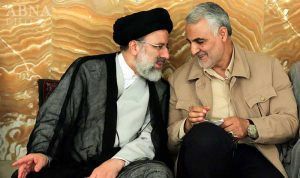
Raisi has held various judicial and security posts but has never managed a large government agency. His new job will certainly give him the needed qualification to be a contender in the upcoming presidential elections. Although Raisi has been reticent about his intentions, his supporters have encouraged him to run. Amirhossein Qazizadeh-Hashemi, a Majlis (Iranian Parliament) deputy and a member of the Front of the Islamic Revolution Stability, recently said, “Many political figures, MPs and representatives of the Supreme Leader are very enthusiastic about Mr Raisi’s candidacy. He has been asked to run by many people.”
Far-right factions have traditionally used religious criteria to select candidates that, at times, has put them at odds with mainstream conservatives. Raisi’s candidacy is aimed to bridge the gap between the two influential forces. However, he has cited his new job as the reason for his reluctance to accept the offer to run. The speculation is that Raisi does not want to risk jeopardising his chances of succeeding Khamenei, if he came to lose in the presidential elections. It remains to be seen whether he would continue making excuses should the revolutionary forces guarantee him a full-proof win. There are no legal obstacles preventing Raisi from taking part in the elections since his current job, as the custodian of the Astan, is not an executive post.
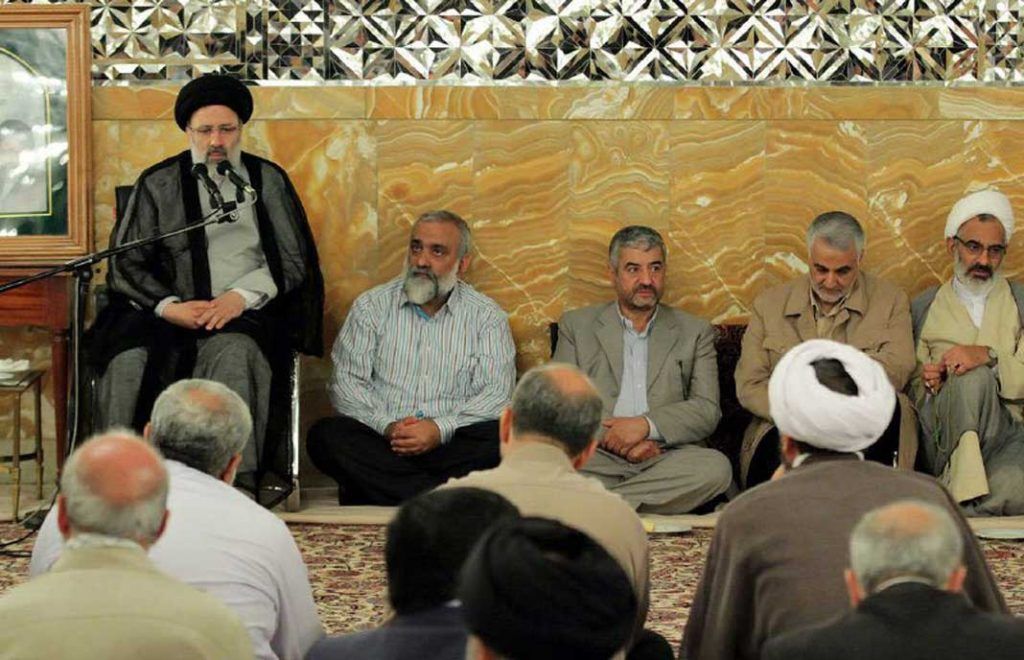
As far as the conservatives are concerned, clerics with backgrounds in security agencies or former IRGC commanders make ideal presidential candidates. The political objectives of revolutionary forces that promote Raisi and Qasemi are in line with the views of Iran’s Supreme Leader. Their current mission, irrespective of whether they win or lose in the forthcoming elections, is to prove that President Hassan Rouhani’s conciliatory diplomacy has been a dismal failure. They argue that Rouhani’s “heroic flexibility” helped seal a nuclear deal that has passed its sell-by date.
The new US administration’s tough stance on Iran has given the extremists plenty of ammunition to use against Rouhani and his government. Renewed hostilities between Tehran and Washington, and mounting political attacks on Iran by Israel and many Arab countries in the region, have prompted the Islamic republic’s officials to abandon the policy of heroic flexibility that enabled them to make concessions to the West without losing face during the tough nuclear negotiations.
The Islamic republic has never held fair and democratic elections in its entire history, and the public has had to vote for the lesser of two evils in past elections. Presidential elections in May will not be any different from previous ones, regardless of whether Qasemi or Raisi run against Rouhani. The fact remains that the regime has difficulty finding a viable alternative to Rouhani. Unless it looks beyond its incestuous political inner circle, a highly unlikely scenario, the electorate will have to swallow yet another bitter election result.
With only 90 days left until the 2017 presidential elections, and no clear frontrunner, the unfolding discord among various competing factions inside the regime will continue to be on display on a daily basis.

